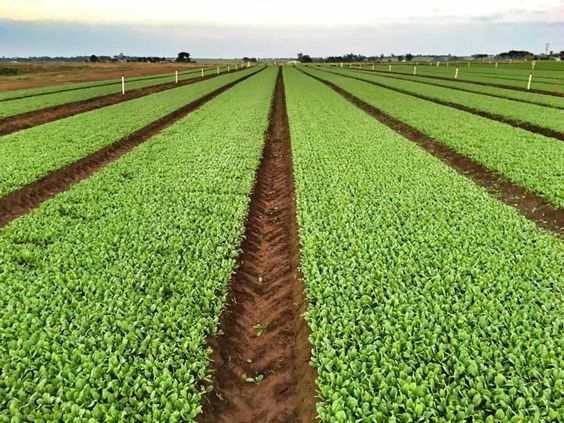Optimizing Growth: How Agricultural Nutrition Management Systems Empower Smart Agriculture
Agricultural Nutrition Management Systems sector is undergoing a significant transformation. Smart agriculture, driven by technological advancements, is revolutionizing the way we cultivate crops and manage resources. A crucial component of this evolution is the concept of agricultural nutrition management systems. These systems provide farmers with data-driven insights to optimize nutrient delivery for their crops, leading to increased yields, improved sustainability, and cost-effectiveness.
Contents
- 1 Understanding the Importance of Nutrient Management
- 2 The Power of Agricultural Nutrition Management Systems
- 3 Benefits of Utilizing Agricultural Nutrition Management Systems
- 4 Considerations for Implementing Agricultural Nutrition Management Systems
- 5 The Future of Smart Agriculture with Precision Nutrition Management
Understanding the Importance of Nutrient Management
Plants require a specific balance of essential nutrients for optimal growth and health. These nutrients, including nitrogen, phosphorus, potassium, and micronutrients, influence various aspects of plant development. However, traditional practices often rely on estimations and generic fertilizer application, leading to several challenges:
- Inefficiency: Over-fertilization not only wastes resources but also contributes to environmental problems like water pollution and soil degradation.
- Nutrient Deficiencies: Under-fertilization can limit crop growth and quality, ultimately impacting yield and profitability.
- Unpredictable Results: Guesswork in nutrient management can lead to inconsistent results and missed opportunities for maximizing crop potential.
The Power of Agricultural Nutrition Management Systems
Agricultural nutrition management systems address these challenges by integrating data and technology to provide farmers with a holistic approach to nutrient management. Here’s how these systems empower smart agriculture:
- Data-Driven Decision Making: Soil testing forms the foundation. These systems can integrate data from soil analysis, providing insights into existing nutrient levels and deficiencies.
- Crop Specific Recommendations: The system considers the specific crop being cultivated, its nutritional requirements at different growth stages, and desired yield targets.
- Weather Monitoring: Real-time weather data is factored in, ensuring fertilizer application aligns with optimal conditions for nutrient uptake.
- Precision Application: Advanced systems can guide the use of variable-rate applicators, which adjust fertilizer application according to specific needs within a field. This eliminates over-application in some areas while ensuring adequate supply for nutrient-deficient pockets.
- Integration with Other Smart Ag Technologies: These systems can connect with other smart agriculture tools like irrigation systems and crop health monitoring sensors, creating a network that optimizes resource management holistically.
Benefits of Utilizing Agricultural Nutrition Management Systems
The implementation of agricultural nutrition management systems offers a multitude of benefits for farmers, the environment, and consumers:
- Increased Crop Yields: By ensuring plants receive the right nutrients at the right time, these systems contribute to healthier crops with improved yield potential.
- Enhanced Crop Quality: Optimized nutrition fosters better crop quality, leading to higher market value and consumer satisfaction.
- Improved Resource Efficiency: Precise application of fertilizers minimizes waste and reduces overall farming costs.
- Environmental Sustainability: Reduced fertilizer use protects soil health, minimizes water pollution from nutrient runoff, and promotes environmentally friendly practices.
- Data-Driven Insights for Future Planning: The data collected by these systems helps farmers refine practices for subsequent seasons, leading to continuous improvement.
Considerations for Implementing Agricultural Nutrition Management Systems
While agricultural nutrition management systems offer a wealth of benefits, certain considerations are vital for successful implementation:
- Technology Adoption: Farmers may require training and support to fully utilize the system’s capabilities.
- Data Integration: Ensuring seamless data transfer between different systems is crucial for accurate analysis.
- Cost-Effectiveness: The initial investment costs for these systems need to be weighed against their long-term benefits.
- Scalability: Choosing systems that can adapt to the specific farm size and crop types is important.
The Future of Smart Agriculture with Precision Nutrition Management
Agricultural nutrition management systems represent a significant step towards a more precise and data-driven approach to farming. As technology continues to evolve, these systems will integrate even further with other smart agriculture solutions. This convergence will lead to the creation of intelligent ecosystems that optimize all aspects of agricultural production, from resource management to pest control to harvesting.
The benefits extend beyond the farm. Consumers can look forward to more consistently high-quality, sustainably produced food. Additionally, with improved resource efficiency and reduced environmental impact, agricultural nutrition management systems pave the way for a more sustainable future for the agricultural sector.
By embracing these advancements, farmers can unlock the full potential of their land and resources, ensuring long-term profitability while contributing to a healthier and more sustainable food system for all.




